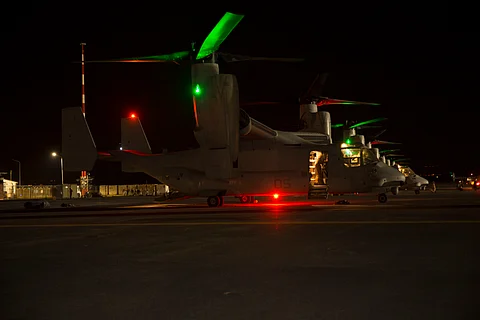

Heavy fighting has reignited in the Libyan capital Tripoli less than a day after the Government of National Unity (GNU) declared an official end to military operations and announced a city-wide ceasefire.
Gunfire and explosions were reported throughout several neighborhoods late Tuesday and into Wednesday. Eyewitness accounts cited by local media described renewed militia mobilizations along key arteries including Al-Shat highway, the Fashloum roundabout, and the area near Mitiga Airport, which was subsequently closed due to security concerns.
The escalation comes in the wake of the high-profile assassination of Abdulghani al-Kikli, also known as Ghaniwa, the influential head of the Stability Support Apparatus (SSA). The GNU-affiliated leader was reportedly gunned down in southern Tripoli on Monday. His death triggered a swift offensive by units loyal to Prime Minister Abdulhamid al-Dbeibah, who reportedly seized SSA positions in Abu Salim and adjacent districts.
Though the Libyan Defense Ministry had claimed on Tuesday that order had been restored, hostilities resumed shortly thereafter, with confrontations involving pro-government forces and fighters from the powerful Special Deterrence Force (Rada).
In a statement released Wednesday, the Defense Ministry reaffirmed a “ceasefire in all axes of tension inside the capital” and stated that neutral units had been deployed to prevent further bloodshed and protect critical state infrastructure.
The United Nations Support Mission in Libya (UNSMIL) voiced strong concern over the renewed fighting, condemning the “accelerated escalation of violence” in Tripoli and reports of civilian casualties. The mission reiterated its call for an “immediate and unconditional ceasefire in all regions” and demanded the establishment of safe corridors for civilian evacuations from conflict zones.
Libyan and regional experts suggest that Ghaniwa’s killing has amplified existing tensions between rival militias. Tamara Ryzhenkova, a Middle East historian at St. Petersburg State University, told RT that while the SSA leader’s death is a flashpoint, such outbreaks of violence are endemic to western Libya. “The setback of his group could contribute to centralization of power, however fragile it might be,” she noted.
Award-winning Libyan journalist Mustafa Fetouri echoed that sentiment, stating that the conflict reflects deep-rooted competition for influence and funding among Tripoli's armed groups. “Ghaniwa had grown too powerful. His elimination won’t usher in stability—it may well worsen the situation,” he warned.
As Tripoli teeters once again on the brink of urban warfare, international observers and Libyan citizens alike are left questioning the viability of the GNU’s authority. Despite the official ceasefire, Libya’s fractured political and security landscape continues to pose significant obstacles to peace.